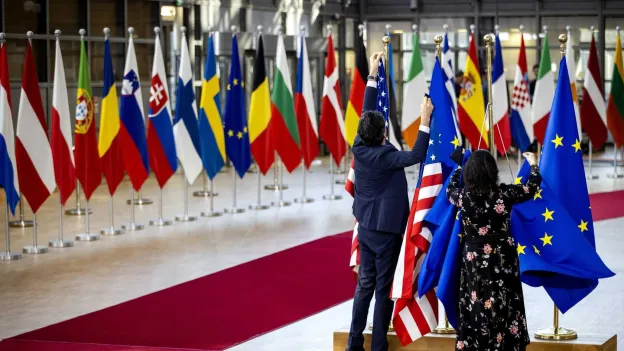EU Member States Stick to Austerity Measures in Brussels: 'It's Not Easy'

5
World
November 15, 2024 14:10
brussels - EU member states are facing challenges as they negotiate the EU budget for 2025 amid increased interest costs for the coronavirus recovery fund.
Marathon negotiations on the EU budget for 2025 have kicked off on Friday. The member states, the European Parliament, and the European Commission have until Monday to reach an agreement on the allocation of 200 billion euros.
The increased interest costs for the 800 billion euro coronavirus recovery fund are the biggest point of contention. Brussels has encountered difficulties due to significantly higher interest rates for the joint loans needed to circulate the funds. There is a shortfall of 2.1 billion euros expected next year. The situation for 2026 and 2027 is even more dramatic with amounts ranging between six and ten billion euros.
In order to keep the budget in check, EU leaders agreed earlier this year that Brussels should absorb half of the interest rate shortfall annually by cutting back on other expenses. The European Parliament is reluctant to make extensive cuts and suggests drawing a portion of the funds from a contingency pot for unforeseen future expenses. The European Commission seems to be leaning towards this approach on Friday.
Many EU member states are keen on sticking to the newly made agreements. In addition, they believe it would be unwise, given the natural disasters in Europe and global instability, to deplete the reserve fund for interest costs. Furthermore, interest shortfalls are only expected to grow in the future.
"It hangs over our heads like a sword of Damocles. Budgeting means foresight," said the Dutch EU ambassador on Friday morning. "Netherlands is cutting 20 percent of civil servants. It's not easy. But if we can do it, why can't we discuss it here?"